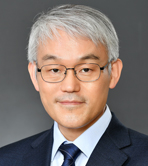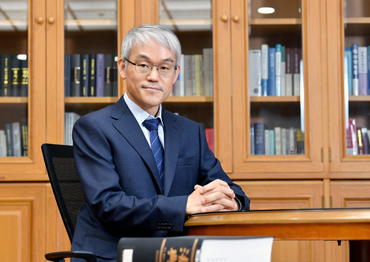
CHUN Daeyup
The Honorable CHUN Daeyup was born in Busan on February 6, 1964. He received an LL.B. from Seoul National University, College of Law. He passed the 30th National Judicial Examination in 1988. He was appointed as a judge in March, 1995.
Since he began his judgeship at Eastern Branch Court of Seoul District Court, he served as a judge at various courts including Seoul District Court, Seoul Eastern District Court, Busan District Court, the Supreme Court, and Busan High Court. He was appointed as a Justice while serving as Chief Presiding Judge of Seoul High Court on May 8, 2021.
During his 26-year judicial career of handling various civil, criminal, and family cases, he has been recognized for his in-depth legal knowledge, well balanced viewpoints, strict sentencing, and unparalleled expertise in criminal law. Also, Justice Chun rendered numerous significant decisions that mirror protection of citizen¡¯s basic rights and his belief in safeguarding the socially vulnerable, as well as ones that reflect diverse values and the trend of the times.
Justice Chun emphasized the mindset of judges that in a trial, they should always actively listen to the arguments of both parties with well-balanced perspectives so that the legal maxim, ¡®Judges verify the truth through the words and eyes of the parties while the parties see the justice delivered through fairness in the courtroom¡¯ can be realized in a courtroom. He recounted that every time he entered the courtroom wearing his robe to render a decision, he was afraid that his judgment and the reason might hurt feelings of the parties because of his thoughtlessness.
He is well known as a judge who ceaselessly strives to study jurisprudence. With his experience of working as a research judge at the Supreme Court twice, Justice Chun authored a number of articles and commentaries, and co-authored compendium of criminal court practices and commentaries on penal code.
While serving as a Standing Commissioner of the Sentencing Commission, he played a pivotal role in enhancing sentences for crimes of abuse of and aggravated bodily injury on children and crimes of death resulting from child abuse, and in establishing sentencing guidelines for crimes of defamation with false facts, crimes of conducting fund-raising business without permission and crimes of voice phishing. Furthermore, he made a profound contribution to improving expertise of the Sentencing Commission by providing a symposium (¡®Alcohol Drinking and Sentencing¡¯) for a sufficient public debate on sentencing before amendments were made to Act on the Aggravated Punishment of Specific Crimes (so-called Yoon Chang-ho Act) to enhance punishment for crimes of driving under the influence and to Criminal Act to scale down sentence mitigation for the reason of mental weakness.


